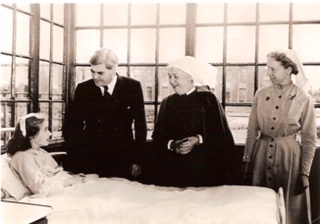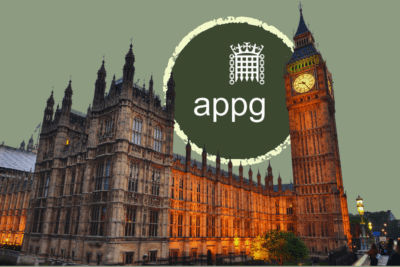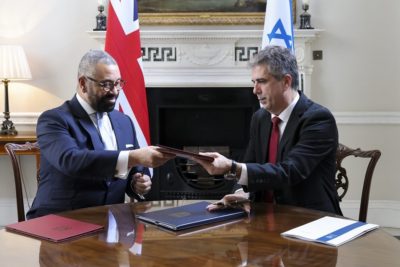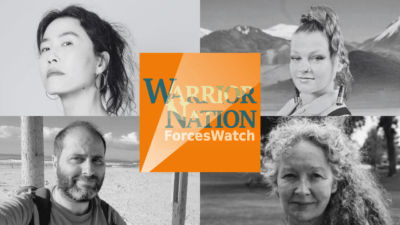High ideals: VE Day, Covid and an anti-militarist future

The 75th anniversary of Victory in Europe Day, better known as VE Day, falls on Friday. It commemorates the acceptance by the Allies, on 8 May 1945, of the Nazi surrender and the bringing to a close of a global total war which cost somewhere between 70 and 85 million lives.
The anniversary falls at a strange moment. Official events had been planned around the UK to mark the event, replete with a now-familiar patriotic tone, will not now occur due to the crisis. Yet Covid, particularly the state response to the pandemic, is perhaps itself being militarised with endless sepia-toned comparisons to the Second World War and the phenomenon of Captain Tom Moore, whose efforts to fundraise for the NHS appear to have been quickly captured by the defence establishment,
Yet as people around the world consider what the post-Covid world might look like, the unexpected collision of these two historic moments is a good time to reflect on the ideas and hopes that emerged in the wake of the Second World War, the degree to which these were realised and how they have endured or been chipped away in the intervening seven and a half decades.
Any serious vision for a post-pandemic world should build upon the same ideals which animated people to push for a more just, safer, healthier and more peaceful world after 1945. The end of the war provided hard lessons and a political space in which many high ideals could be not just expressed but actively pursued, so should the post-pandemic era.
Laws of War
Laws governing war existed before WW2, but the scale of the conflict and the devastation it caused, gave the space for some organisations, like the International Organisation of the Red Cross (ICRC), to push for new treaties which would deepen and extend protections for civilians in international and civil wars and to strengthen enforcement. This resulted in what we term the Geneva Conventions – a set of expanded laws governing warfare.
These increased protections and powers of enforcement, however, have not stopped atrocities, including by the military forces of nations which won the war, in the intervening 75 years. From the British wars of decolonisation, through Vietnam and US interventions in Latin America through to Iraq, Afghanistan and Libya, these laws have been broken and exceeded with alarming regularity.
This perceived slide back into barbarism saw the then-ICRC president Peter Maurer speak of the “shattering of the system of the Geneva Conventions” in 2015 ahead of a conference to reaffirm the commitment of signatory nations. This was in particular reference to the bombing of a hospital in Kunduz, Afghanistan, by US and Afghan forces that year.
Closer to home, the UK has more recently begun its own assault on existing humanitarian law under the umbrella of fending off what officials and commentators call “vexatious allegations” against troops over deployed in Iraq and Afghanistan. A move which some NGOs have warned undermines the rule of law as it pertains to warfighting. Organizations like the Law Society, as well as individuals, have said that such a move will have serious implications for accountability in future military operations.
Although the idea has met with a degree of resistance from leading security council members, the US and China for example, the UN’s call for a global ceasefire also reflects the importance of the Covid moment while harking back to the period of the UN’s foundation in a bid to ensure serve as an arbiter to a more just global order.
Welfare not Warfare
The aftermath of the war also saw the creation in the UK, by popular democratic consent through the election of the Attlee government, of institutions like the NHS and welfare state. The strong animating factor in the drive for these new organisations was the deprivation of the war and that faced following the First World War. The facts of their establishment have been written about widely, as has their gradual decline and privatisation particularly over the last 40 years since the rise of neoliberalism.
Both institutions were on a fundamental level products of the war and it is right that at a time when millions of people are negotiating what remains of the UK welfare system and are relying heavily on a badly hollowed-out NHS to provide healthcare, we seriously discuss the way these legacy institutions are provisioned. Part of that debate must include the matter of what we fund and how. During the crisis we have heard calls from senior military figures for additional funding to face state threats and at the same time reports that privatisation continues apace as NHS staff deal with the pandemic.
Diplomacy
The end of WW2 saw diplomacy in overdrive. Many treaties were signed and organisations formed which looked to guarantee and deepen rights and protections for national populations around the world, often alongside programs to rebuild and reshape economies like the Marshall Plan. These include, on one level, the Paris Peace Treaties of 1947, which sought to ensure defeated nations would guarantee democratic and identity-based rights to those who lived in them. Looking more globally, the United Nations, founded in 1945, with the original 51 members committed to “maintaining international peace and security, developing friendly relations among nations and promoting social progress, better living standards and human rights.” Other treaties were more specific, dealing with reparations, governance and rebuilding with regards to Germany and Japan.
There is no doubt that these very varied efforts had differing degrees of success and amount, in many cases, to a victor’s peace yet there are many positive achievements amid the realpolitik. It is also the case that since these treaties were made we have seen the commitment which many nations showed after the war to issues like self-determination, supporting democratic rights and multilateral decision-making gave receded. Whether in Iraq, Ukraine, the South China Sea or elsewhere powerful, and often nuclear-armed, nations continue to engage in activities which increasingly resemble the sorts of nationalism, expansionism and brinkmanship which saw the world plunged into war twice before.
A post-Covid world
These are just three strands of a debate which must take place about what the world could look like after the pandemic has been stopped, or at least brought down to manageable levels. This VE Day is a good time to look at the lessons of the post war settlement in an even-handed way. It may appear that the hopes and ideals held by those who 75 years ago wanted war to be limited by law, wanted broader access to healthcare, who preferred dialogue to armed force, have been lost to history. Yet the questions they asked should be asked again today and, now as then, the answers acted upon in the interest of a better, more just and less militarised settlement.
See more: military in society, remembrance, Covid-19
Like what you read?
> Sign up for our newsletter or blog notifications
> Support our work – from just £2 a month










